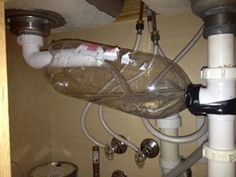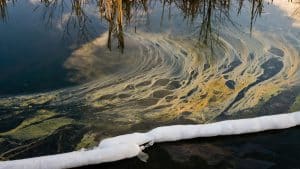Plumbing problems can really be a nuisance! The mess, the money, the headache! The crazy thing is that most plumbing problems can be prevented! Prevention is always going to be the best line of defense when it comes to plumbing problems. Routine maintenance accompanied with good habits is the best way to prevent plumbing problems. Here are some of the leading causes of plumbing problems.
#1 DIY Gone Wrong, Way Wrong

DIY is one of the leading causes of plumbing problems. Weekend warriors and part time handy man (or woman) can really wreak havoc on their plumbing systems if they don’t know what they are doing. Not saying that there aren’t some qualified DIYer’s out there, however a lot of the time this is simply not the case. In most cases, it’s a better and safer bet going with a professional plumber. Professional plumbers are trained, licensed, and have the correct tools. Chances are with a professional plumber; the job will be done correctly the first time. The DIY route can often lead to more damage and compromised safety and health conditions, leading to more headache and more money.
#2 Improper Care of Water Heater
Water heaters play a vital role in maintaining the comfort of a home. When it comes to plumbing problems, issues with the water heater are one of the most common problems that arise. Standard tank storage water heaters typically last about 10 to 15 years. Regular maintenance is key for effectiveness, efficiency, and longevity. Proper maintenance includes: checking the tank for damage, draining the and cleaning out any sediment, checking all the components and valves, checking the pilot, and adjusting the temperature. For best results these tasks should be completed by a professional. With proper maintenance, you can increase the longevity of your water heater, however when the times up on your water heater it’s time to replace it. Talk to your plumber about tankless water heater options; they are more efficient, last longer, and are easy to maintain.
#3 Harmful Chemicals
Improper disposal of harmful chemicals is another common cause of plumbing problems, not to mention the damage they do to the environment. Disposing of harmful chemicals like solvents,

cleaners, and paint can cause damage to the pipes and cause clogs. Proper disposal of chemicals is a must! Remember that everything that goes down the drain could eventually end up in rivers, streams, lakes, and oceans. Don’t contaminate one of most precious resources! Most cities will have facilities set up specifically for disposing of harmful chemicals. Check with your local municipalities for more information on how to properly dispose of harmful chemicals.
#4 Liquid Drain Cleaner
Liquid drain cleaner is right up there with harmful chemicals and is another leading cause of plumbing problems for several reasons. First, liquid drain cleaners are abrasive and can cause damage to your pipes. Second, liquid drain cleaners usually don’t get to the root of the problem. They might provide temporary relief for a more serious problem. This fake sense of security can often be misleading because in reality the plumbing problem might be getting worse. Liquid drain cleaners are also dangerous to handle and bad for the environment.
#5 Treating Garbage Disposals Like Trash Cans
Treating garbage disposals like trash cans is another common cause of plumbing problems. We really can’t stress enough, that what you put down the garbage disposal really matters. There are a lot of common practices out there that really do a lot of damage to plumbing systems. Chalk it up to lack of education. Here is a list of things to never put down the garbage disposal: grease, large food particles (i.e. meat bones), fibrous food particles (i.e. corn husks), trash, plastic, glass, and harmful chemicals. By watching what goes down the garbage disposal you can really save your plumbing system and yourself from a lot of grief. Also, always remember to run water when using the garbage disposal and to clean and deodorize your garbage disposal on a regular basis.
Related Articles
Three of The Most Common Plumbing Problems and How to Avoid Them
Three Reasons Only an HVAC Professional Should Inspect Your Heating System
Tips to Help You Save Money on Your Utility Bills







